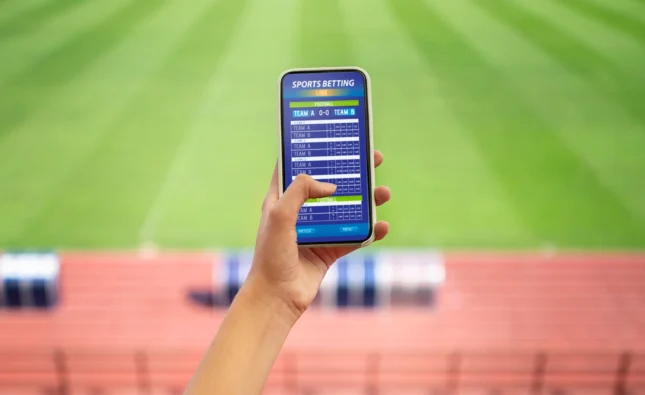As sports betting becomes a global phenomenon, it is crucial for platforms to adapt their software to meet the needs of diverse regions. Localising sports betting software is an essential strategy for businesses aiming to succeed in international markets. This article provides expert advice on effective localisation practices, focusing on translation, legal compliance, technical adjustments, and market-specific strategies to enhance user experience and drive success.
The Role of Translation in Localising Sports Betting Software
Sports connect people across cultures, creating passionate communities. Similarly, sports betting apps need to adapt to these diverse cultures for success. Translation plays a significant role in localisation, ensuring that content is accessible and relevant to users in their native languages.
For instance, a betting platform catering to Indian users must offer content that resonates with local customs, language, and sporting preferences. This requires not only direct translation but also cultural adaptation, recognizing that audiences in different regions have varying expectations and needs. The objective of localisation is to ensure that users across the globe feel at home, enhancing their experience and fostering community engagement.
Key Guidelines for Global Sports Betting Software Localisation
When localising sports betting software for international markets, several best practices must be followed:
- Adhere to Local Gambling Regulations: Different countries and regions have distinct gambling laws. It’s vital to comply with these legal frameworks to ensure the platform operates within the bounds of local regulations.
- Localise Payment Methods and Currencies: Users expect to make deposits and withdrawals in their local currencies. The platform should accommodate this, integrating relevant payment methods and ensuring smooth transaction processes.
- Adjust for Local Time Zones and Formats: Modify content to display time, dates, and phone numbers according to local standards. For example, formats for displaying time or dates can differ significantly between regions.
- Regular Testing: Ongoing testing ensures that translations, cultural adaptations, and functionality perform as expected in each market.
- Engaging Design: A visually appealing and culturally compatible design, using appropriate fonts, colors, and animations, can make a significant difference in attracting local users.
- Cultural Compatibility: It’s essential to consider not only language but also the cultural context of each market. Understanding local traditions, sports preferences, and gambling habits will help tailor the user experience.
Translation Tools and Their Role in Localisation
For accurate and efficient localisation, tools like glossaries and translation memories are indispensable. These tools help ensure consistency and precision across different languages and markets, allowing for faster and more effective translations. By storing common phrases and terms, these tools ensure that the app maintains a unified tone and message, regardless of the language.
Understanding Local Betting Markets
Knowledge of the local betting market is crucial to effective localisation. Understanding the types of sports and betting events that are popular in each region allows developers to tailor the app’s offerings. Additionally, understanding user behavior, preferences, and regional betting trends helps in creating a more personalized experience.
For example, football might be the most popular sport in Europe, while cricket dominates in India. By localising sports content to highlight popular regional events, sportsbooks can attract a broader audience and enhance user engagement.
Navigating Geofencing and Legal Compliance
Legal compliance is a critical aspect of localisation. Different countries and even states within countries can have distinct gambling laws, which must be adhered to when developing sports betting software. Some regions may have restrictions on mobile gambling, user registration, or payment methods.
To avoid legal pitfalls, it’s essential to carry out in-depth research on local regulations and ensure that the software complies with all relevant laws. Geofencing technology can be employed to restrict access to certain features based on a user’s location, further ensuring compliance with local laws.
Customizing Sportsbook Software for Local Markets
Sports betting apps are powered by underlying technology, which allows for significant customization during the localisation process. Adjustments can include altering the language, adjusting currency symbols, formatting numbers, and modifying game schedules to align with local time zones.
Additionally, integrating local payment gateways is essential to facilitate seamless transactions. Whether it’s credit cards, e-wallets, or even cryptocurrency, adapting to regional preferences ensures that users can easily make deposits and withdrawals, enhancing user satisfaction.
The Impact of Localisation on User Trust and Engagement
The localisation of sports betting software plays a crucial role in building trust with users. When users can interact with a platform in their native language and see content that reflects their cultural preferences, they are more likely to engage with the platform.
Moreover, localised betting apps create a stronger impression of credibility, which can result in increased deposits, smoother transactions, and higher user retention rates. Research shows that consumers are more likely to trust and engage with businesses that provide content in their native language. In fact, 72.4% of consumers are more likely to make a purchase when content is available in their own language.
Overcoming Challenges in Localisation with DevOps
Despite the benefits of localisation, there are challenges that need to be addressed, particularly in terms of regulatory compliance, data privacy, and user registration. Different countries have varying laws regarding data storage, with some requiring that user data be stored locally. Additionally, not all regions allow online gambling, and certain payment methods may be restricted.
DevOps can play a crucial role in overcoming these challenges by enabling continuous integration and delivery of localisation updates. DevOps processes can ensure that localisation efforts are aligned with evolving legal requirements and regional regulations. By automating testing and deployment, DevOps helps ensure that updates are promptly implemented, keeping the software in compliance with local laws.
For instance, a feature that is enabled in one region (such as credit card payments) can be turned off in another region where it is prohibited. This adaptability is crucial for sportsbooks operating in multiple jurisdictions.
Conclusion
Successfully localising sports betting software for global markets requires careful planning, cultural understanding, and technical adjustments. By following best practices, using the right tools, and addressing legal requirements, sports betting platforms can ensure they meet the needs of diverse audiences.
Investing in localisation not only improves user experience but also builds trust and drives engagement. With the support of DevOps and continuous adaptation to local laws and user preferences, sports betting apps can thrive in a global market, offering a seamless and personalized experience to users across the world.














